Positive
Impact
Finance
- TOP
- Sustainability
Positive Impact Finance
Positive Impact
Finance Evaluation Report
In carrying out positive impact finance (hereinafter referred to as PIF), Ogaki Kyoritsu Bank and OKB Research Institute analyzed and evaluated the business activities of Yamada Shokai Holding and its group companies (hereinafter referred to as Yamada group) to determine the impact (positive impact / negative impact) of group’s business activities on the environment, society, and economy.
The analysis and evaluation are based on the system developed by Ogaki Kyoritsu Bank and OKB Research Institute, and are compliant with the PIF Principles and PIF Implementation Guide (model framework) advocated by the United Nations Environment Programme Finance Initiative (UNEP FI), and the "Basic Concept of Impact Finance" compiled by the Positive Impact Finance Task Force of the ESG Finance High-Level Panel.
Impact Assessment
In order to measure the impact of specific incidences and other incidents that may occur hereafter, evaluation is conducted to ensure that expansion of positive impact (PI) and mitigation of negative impact (NI) are appropriately carried out, and that the KPI is established for each specific impact.
| Item | Content |
|---|---|
| Category of impact | Reduction of NI in the environmental aspect |
| Category | Atmosphere / Climate |
| Related SDGs | 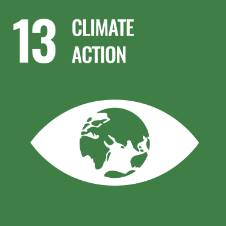 |
| Content / Response Policy | '- Efforts to reduce greenhouse gas emissions through active use of energy-saving facilities, use of renewable energy, and reduced use of gasoline |
| KPI | '- Reduce greenhouse gas emissions on a per-unit basis by 2% every year compared to the previous year '- 100% introduction of LED lighting at all offices by FY 2030 '- Test the conversion of gasoline-powered tools used at construction sites to electric power during FY2023, and replace one or more tools in FY2024. '- Switch 5 of the current company-owned automobiles to electric vehicles compared to the previous year '- Switchover 30% of the current company-owned light cars to electric vehicles by FY2030 *Electric vehicles: EV / HV / PHEV / FCV |
| Item | Content |
|---|---|
| Category of impact | Reduction of NI in the environmental aspect |
| Category | “Resource efficiency and safety,” “Waste” |
| Related SDGs | 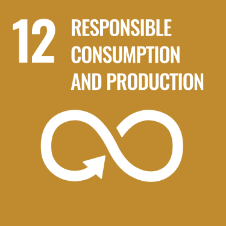 |
| Content / Response Policy | '- Work on waste reduction by reducing losses at various construction sites '- Work on circulating resources through reuse, and promote the use of recycled materials |
| KPI | '-Reduce the aggregates used for the pipe extension in gas pipeline work by 2% from the previous year '- In regard to the hot-laid asphalt mixture used for the temporary restoration of gas pipeline work, maintain 100% use of recycled hot-laid asphalt mixture '- Obtain a 100% recycling rate of the combined duct during the loan period |
| Item | Content |
|---|---|
| Category of impact | Expand PI in social aspects Expand PI in economic aspects |
| Category | “Health and Hygiene,” “Residence,” “Comprehensive and Healthy Economy,” “Energy” |
| Related SDGs | 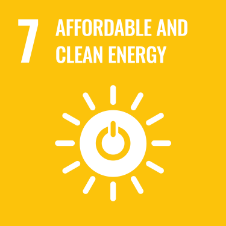 |
| Content / Response Policy | '- Strengthen safe and high-quality business execution systems for major business '- Promote the provision of added value to customers through the active sale of energy-saving devices |
| KPI | '- Continue contributions to the safety of social infrastructure in the community through gas piping work '- Promote the provision of added value to customers through the active sale of energy-saving devices |
| Item | Content |
|---|---|
| Category of impact | Expand PI in social aspects |
| Category | “Water,” “Residence,” “Energy” |
| Related SDGs | 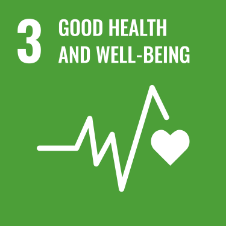 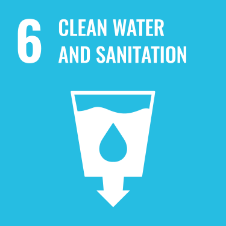  |
| Content / Response Policy | - Develop new businesses in the growing field, such as housing renovation |
| KPI | - Increase sales percentage for insulation and barrier-free renovation in the housing renovation field - Increase sales percentage by 10% for the electricity, as well as water supply and draining work during the loan period for the entire group |
| Item | Content |
|---|---|
| Category of impact | Expand PI in social aspects Reduce NI in social aspects |
| Category | “Employment” |
| Related SDGs | 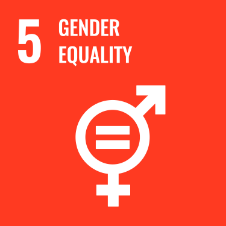 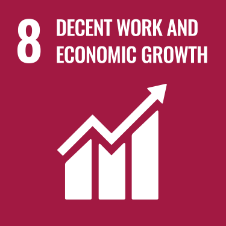 |
| Content / Response Policy | '- Create a work environment that enables the promotion of diversity and work-life balance '- Ensure accident prevention during work '- Provide proactive educational opportunities for all employees |
| KPI | '- Aim for 100% use of childcare leave for all employees '- Reduce the number of industrial accidents by 10% compared to the previous year '- Reduce the number of traffic accidents by 10% compared to the previous year '- Support further development of employee’s work performance through continuing employment and training programs Continue to employ workers from overseas Continue with compliance training Continue training to provide the knowledge required in work, such as leadership training and special training for asbestos work -Encourage young employees to obtain national certification (construction managing engineer, etc.) -Continue support for individual growth, making use of external training systems to improve practical skills and mental training -Continue with training by hierarchy |
